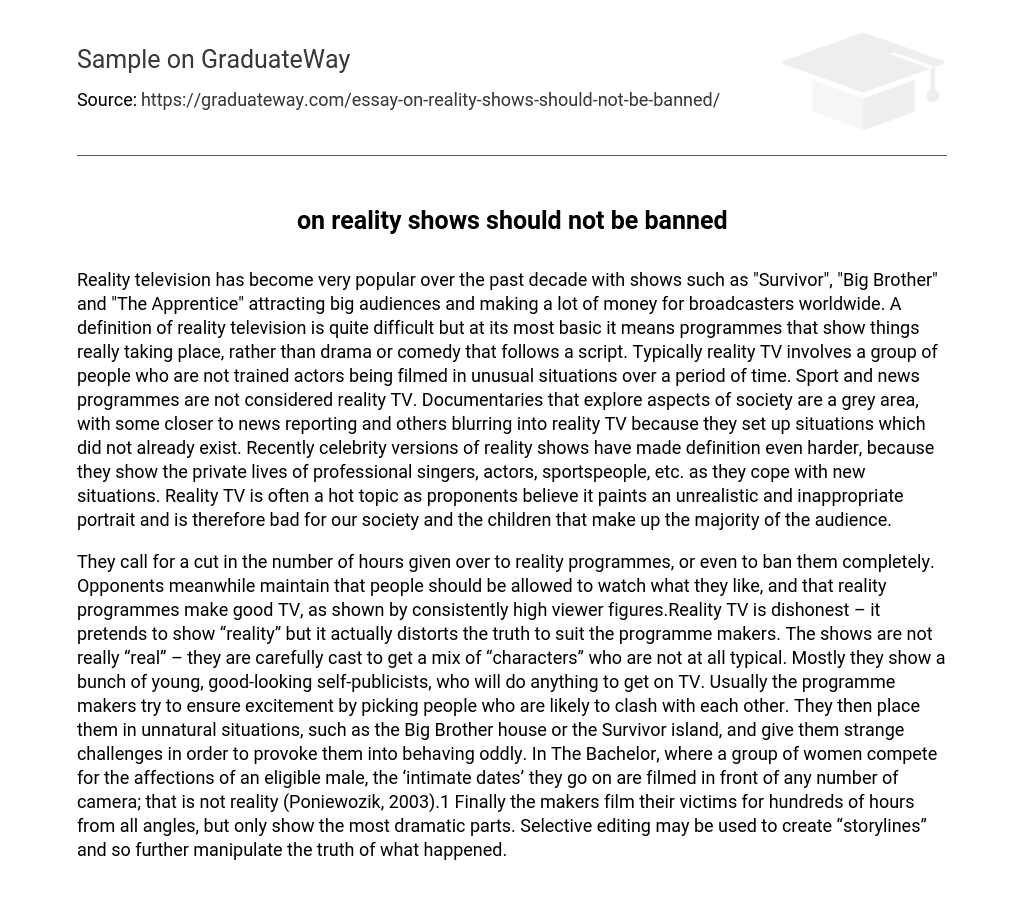Reality television, such as “Survivor”, “Big Brother”, and “The Apprentice”, has gained immense popularity in recent years. These shows attract large audiences and generate significant revenue for broadcasters globally. Defining reality TV can be challenging, but it essentially refers to programs that depict real events rather than scripted drama or comedy. Typically, reality TV involves filming ordinary individuals in unique situations over a specified period of time. It is important to note that sports and news programs are not classified as reality TV. Documentaries exploring societal aspects can blur the lines between news reporting and reality TV by staging fictional scenarios, creating a gray area. The introduction of celebrity versions of reality shows further complicates the definition, as they portray famous singers, actors, athletes, and others navigating unfamiliar circumstances. Critics argue that reality TV presents an unrealistic and inappropriate portrayal potentially harmful to our society due to its predominant young audience.
There is a division in opinions regarding reality TV. Some argue for reducing or banning these programs, while others believe viewers should have the freedom to watch what they enjoy, citing high ratings as evidence of their entertainment value. Critics claim that reality TV is deceptive and presents a distorted version of reality tailored to producers’ preferences. These shows carefully select atypical individuals who will generate conflict with each other in contrived settings and provoke abnormal behavior through unusual challenges. Even on shows like The Bachelor, “intimate dates” are filmed in front of multiple cameras, raising doubts about authenticity (Poniewozik, 2003). Ultimately, hours of footage are selectively edited to highlight dramatic moments and construct enticing storylines, further distorting the truth.





